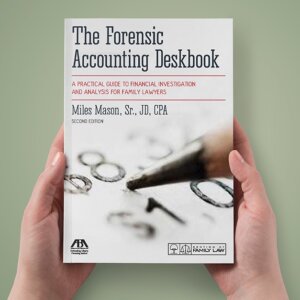Ready for Legal & Support Advice On-Line? Shop Carefully.
If you were like me, the past few days produced an e-mailbox inundated with sales and specials-most related to the upcoming holidays. But, two of my special offers stood out and merited some attention because the products were scarcely holiday related.
Five of my inbound emails invited me to get some divorce coaching at half-off. Then there were two emails offering me a $50 discount on a service called “HelloPrenup.” This piqued my interest so I did a bit of searching and think I might offer some timely advice.
Thanksgiving is the start of engagement season. And if you plan to offer or accept a marriage proposal it’s a good time to know something about how marriage works or doesn’t after the engagement and ensuing nuptials. As we have noted in a few articles, where agreements regulating marriage were once viewed as anathema, more couples are exploring whether they want such an agreement.
These agreements come in all flavors and colors. Some expire after a few years. Others regulate management of only some aspects of the marital relationship. The classic “old school” prenuptial essentially says that the parties may be married but their economic lives will be entirely independent. That can be kind of harsh, but it may be what you and your intended want.
But before you get carried away in the undertow of these kinds of agreements, you should know some vitally important facts. Marriage is regulated by the law of the state you live in. That itself is complicated because people move around a lot and rich people sometimes have homes in lots of states. Equally important is the fact that not all states treat these agreements in the same way. Roughly half the states have subscribed to a “Uniform Premarital and Marital Agreements Act.” Other states have adopted laws sympathetic to this law but sometimes inconsistent with it. And there are states that can be said to be hostile in their interpretations of these agreements. It is also important to understand that states often have different definitions of what property may be divided and how it should be divided. Bottom line from the legal side?” It’s complicated.
Second. Assuming you take marriage seriously and the vast majority of people do, this is probably the most important contract you will form during your lifetime. Rosalynn Carter passed away last week. Her contract to marry James Earl Carter, Jr. in 1946 was still in effect on the day that she died. Not many contracts last 77 years.
If you are serious about marriage and serious about whether your marriage can or should have legal limits related to property and income, may I suggest that you need to investigate the subject a little more carefully than Hello Prenup’s $599 sticker price. You will spend more than that on a wedding photographer and that is for pics of a one afternoon frolic. Understand as well that not every intended spouse is going to be as excited about a premarital agreement as you may be and one of the more nettlesome topics is to what degree are either of you willing or prepared to sacrifice career for the needs of kids. A common issue divorce lawyers grapple with is the conflict over whether the parties agreed that one of them would take on primary care responsibilities when the kids arrived. You can address that in an agreement but most agreements are silent on the subject. Yet history has taught us that a parent who does set aside career for parenting responsibilities rarely gets his or her career back on the track it had before kids came along. These are issues that merit discussion between folks getting married and an experienced lawyer can help spot these issues because he or she has seen them play out in a divorce setting. An agreement that could regulate your financial lives for decades merits more attention than what you pay monthly for health insurance.
Now for issue #2. The divorce or “life” coach. People going through divorce often experience emotional turmoil that suppresses their better decision-making skills. This is especially true for a spouse who has been out of the labor market for an extended period of time. The issues are myriad and beyond stuff like property and alimony, there are discussions to be had and decisions to be made about resuming employment, health and life insurance, whether to keep the house, or what assets are best to hold following a divorce. Many times, lawyers watch as their client balls up in agony over the number and complexity of these decisions. Sometimes friends and family can help a divorcing spouse navigate these decisions. But just as often their efforts to support their friend tend toward joining in the blame game rather than helping to see issues clearly. Nearly every divorce lawyer has a story about the client who reveals that his/her therapist thinks the alimony amount is too low or high.
Thus, an objective person with some training, like a life or divorce coach can be a resource far less expensive than the prevailing hourly rates of lawyers. But while the objectivity can be valuable, there is the related question of how involved the coach will become and what skills does that entail. A coach sitting in a community property state where alimony is calculated by formula is not of much help in a state like Pennsylvania where neither the property distribution nor the alimony comes with a formula. In New Jersey awards of counsel fees and expert costs are much more liberally assessed than across the Delaware River in Pennsylvania. A coach is not a substitute for a lawyer but it really does help if the coach understands the legal landscape where the divorce is proceeding. The “coach” ringing my holiday inbox was offering half off her rates. But she’s in Atlanta and while her personal skills in getting a client to “think forward” seemed adequate, I was left to wonder how those skills would be applied to an Eastern Pennsylvania divorce proceeding.
Conclusions: If you think you want a prenuptial agreement, sit down with someone and discuss your hopes and your fears if things do not work out. If you are finding yourself spending lots of money with your divorce counsel “processing” emotions or fears associated with your divorce, ask your lawyer or someone local about a “coach.” Let your lawyer know your reasoning. And then shop for someone who is not just a paid “yes person.”
.






